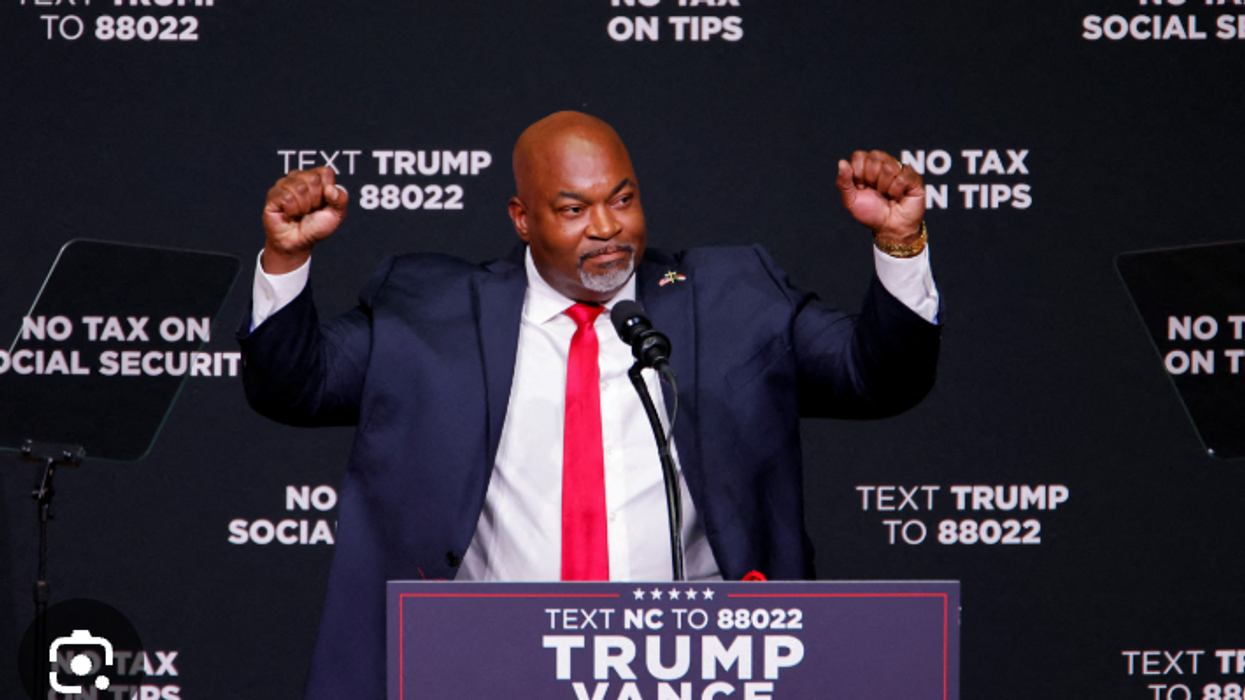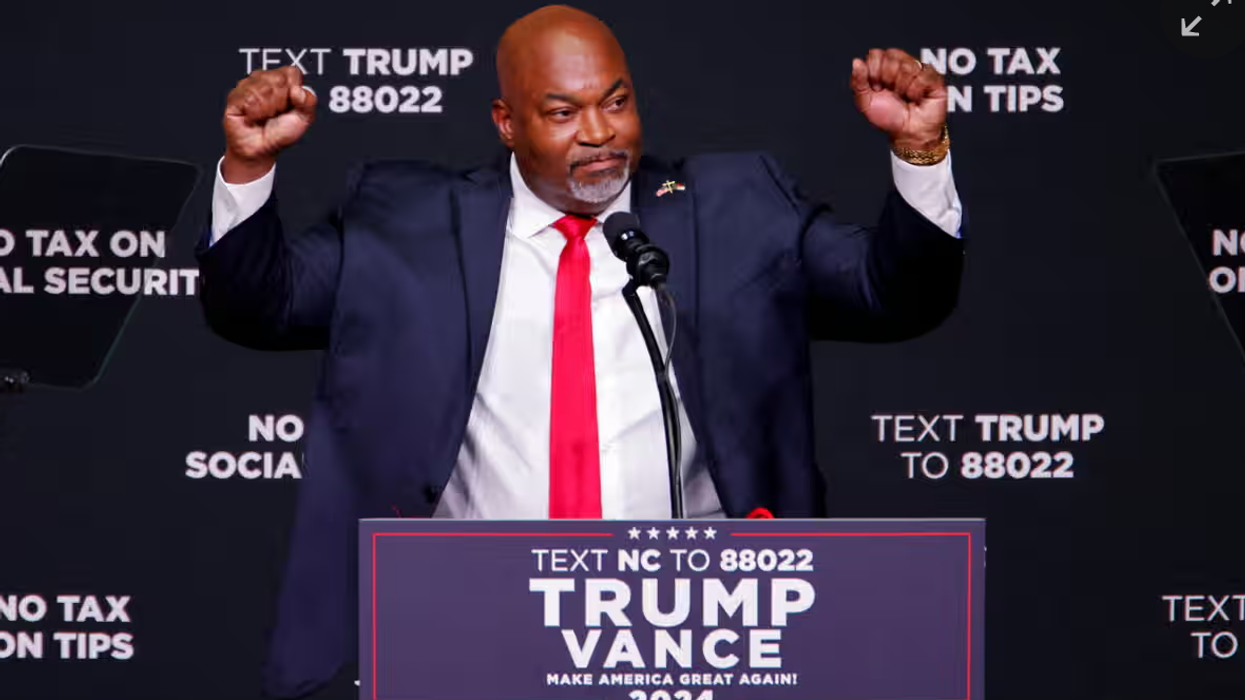Democrat Crushes 'Black Nazi' Robinson In North Carolina Governor's Race
Republican Mark Robinson, a reportedly self-described “Black Nazi” and “perv,” handily lost his bid for governor of North Carolina on Tuesday night, giving him ample time to go back to doing what he allegedly loves: posting racist and creepy stuff on a forum for a porn site.
Robinson lost to North Carolina Attorney General Josh Stein, 58.1 percent to 37.8 percent, with 11 percent of precincts reporting, according to NBC News, which called the race less than an hour after polls closed.
Stein, who makes history as the state’s first Jewish governor, had a strong lead in the polling thanks to Robinson’s long history of making racist, sexist, and other incendiary remarks.
The Republican has denied the atrocities of the Holocaust, falsely saying, “This foolishness about Hitler disarming MILLIONS of Jews and then marching them off to concentration camps is a bunch of hogwash.”
Robinson also called for “wicked people” and socialists to be killed, saying in a speech ironically delivered at a church where parishioners are taught that murder is a sin, “Some folks need killing!”
However, the race was all but over in September, when CNN reported that Robinson had posted repulsive things on a porn website called Nude Africa.
Some of the horrific things he allegedly wrote include:
- An assertion that he is a self-proclaimed “black NAZI!” and that “Slavery is not bad.”
- Attacks on civil rights icon Martin Luther King Jr., whom Robinson called a “commie bastard,” “worse than a maggot,” a “phony,” and a “huckster.”
- Robinson also said the only reason he wasn’t in the KKK was because it doesn’t “let blacks join,” and added of King, “If I was in the KKK I would have called him Martin Lucifer K--n!”
- And a number of sexually explicit posts culminating in Robsinson calling himself a “perv.”
Republicans hoped they could get Robinson out of the race after the gross comments surfaced, but Robinson dug in his heels, denied the report, and stayed in the race, dooming the GOP’s chances at victory.
Revelations of the vile posts led Robinson’s campaign team to flee en masse, despite that his open Holocaust denial wasn’t too far for them.
Prior to the CNN report, Donald Trump had praised Robinson as “better than Martin Luther King,” but after it, he stopped inviting Robinson to his North Carolina rallies.
Reprinted with permission from Daily Kos











